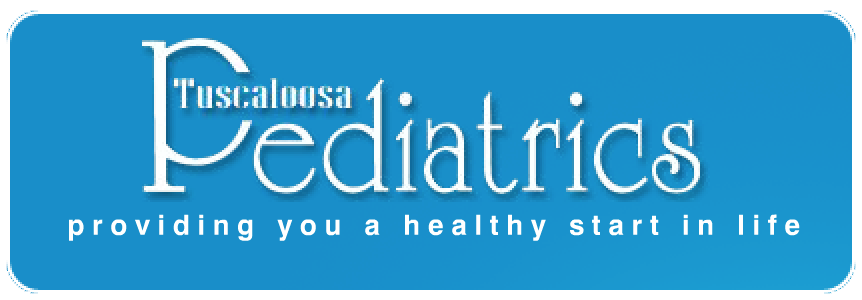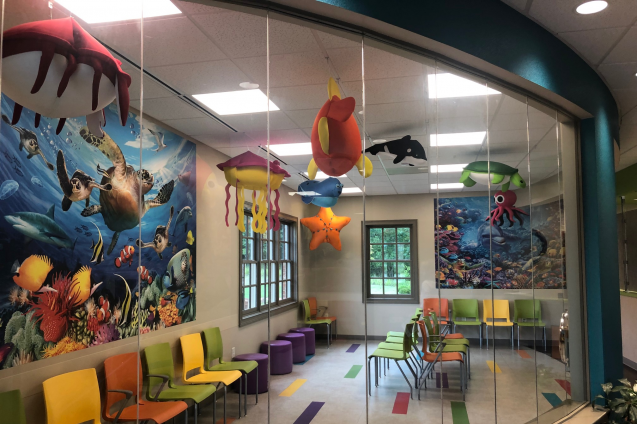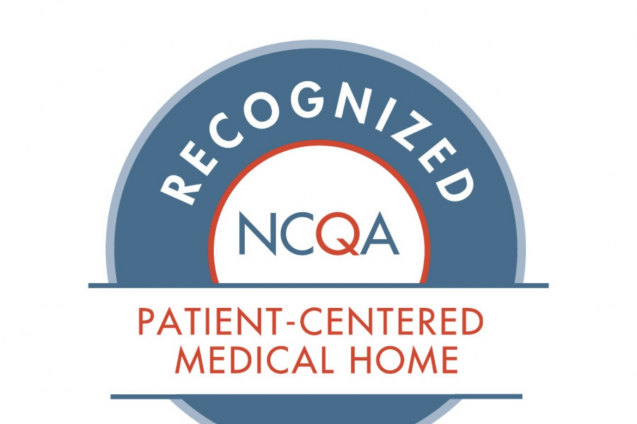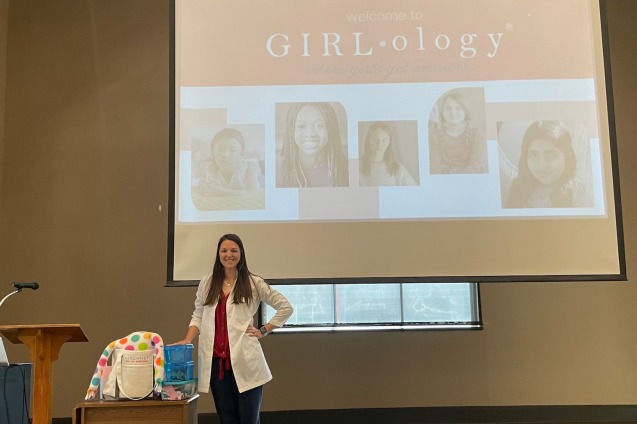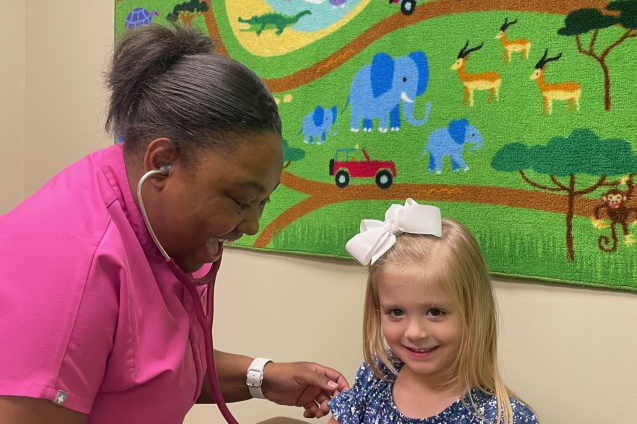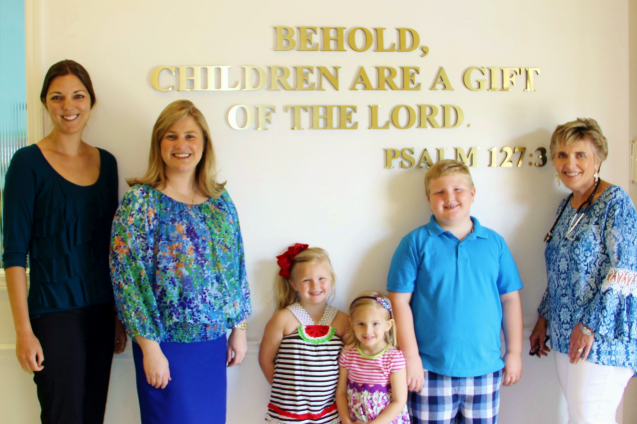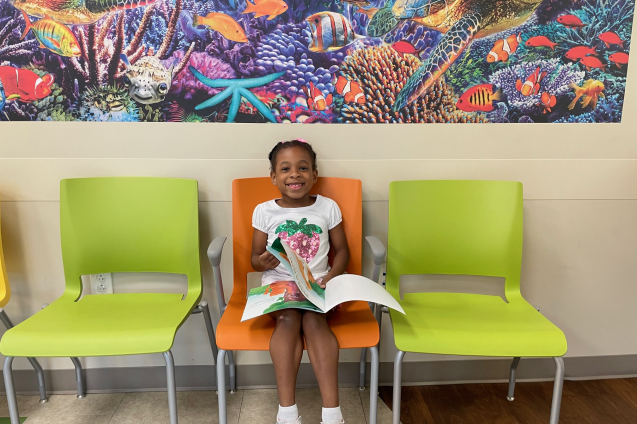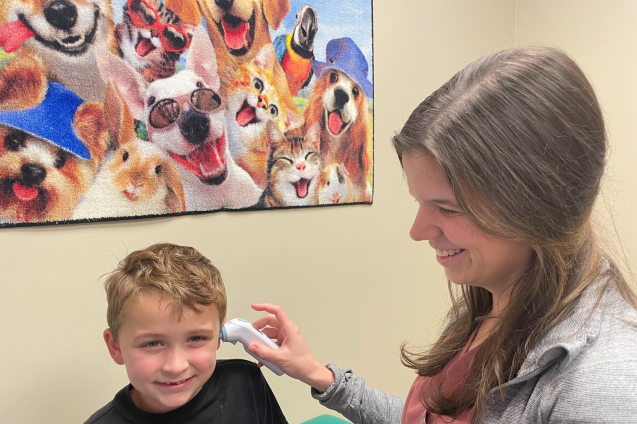Welcome to Tuscaloosa Pediatrics
Caring for the children of Tuscaloosa and West Alabama since the 1960s
Tuscaloosa Pediatrics is your medical home. What does that mean? We are dedicated to providing your children with comprehensive and compassionate health care. We specialize in coordinating your child’s medical care by offering multiple in-office services (including a lactation consultant, mental health counselor, phone/portal advice by licensed nursing staff, and a phlebotomist for on-site labwork) plus maintaining a great relationship with medical specialists in both Tuscaloosa and Birmingham. With a team of Board-Certified Pediatricians and an excellent support staff, we are here to provide medical care for your children from birth to high school graduation. It is no secret that children who are supplied with a foundation of good health are not only healthy children, but also become healthy adults. This is our commitment to you.
News & Announcements
SICK APPOINTMENT REQUESTS
Did your child wake up at 2 am with a fever or complain of ear pain at bedtime? Go ahead and put in a request for a sick appointment through our portal right then!
Our nurses will review your message when they arrive at the office in the morning and offer you an appointment through a return portal message, sometimes before our phone lines even turn on for the day!
Please refrain from calling the office if you have already sent a portal message overnight. If you haven’t heard from us by 9 am, then please call at that time.
IF YOU HAVE AN EMERGENCY, PLEASE CALL 911. For urgent concerns outside of office hours, call (205)333-8222 to reach the on-call nurse. Portal messages are not checked overnight or during the weekend.
Kids Doc Symptom Checker
Does your child have fever? Head lice? Vomiting? Ear pain? Not sure what to do? Check out the KIDS DOC SYMPTOM CHECKER. It may have just the answer you're looking for! If not, then give us a call.
Just click on the link below to use the KIDS DOC SYMPTOM CHECKER.
http://www.healthychildren.org/english/tips-tools/symptom-checker/Pages/default.aspx
Patient Portal
Tuscaloosa Pediatrics is pleased to announce that we have a secure Patient Portal. This portal is designed to enhance patient/guardian – physician communication. We encourage you to sign up for our patient portal which can provide a quick and easy way to request appointments and prescription refills, update demographics, and communicate with our office staff. If you are interested in signing up for Patient Portal access, please contact our office . If you have any questions regarding the Patient Portal please contact our office at (205) 333-8222 and one of our staff members will be happy to assist you.
Holiday Hours
Tuscaloosa Pediatrics is only closed for six holidays during the year - New Year's Day, Memorial Day, 4th of July, Labor Day, Thanksgiving, and Christmas. We are typically open for sick patients on the day after Thanksgiving, Christmas Eve, and New Year's Eve when these fall on a weekday. We are open on all other federal holidays including Martin Luther King Jr Day, President's Day, Columbus Day, and Veterans Day.
Lactation Services
Since January 2019 we have been providing Lactation Services with our Lactation Specialist Vickie Lyle, RN, IBCLC for our patients. In 2025, she was joined by Emily Skelton, RN, CBS. Newborns will follow up with Vickie or Emily and one of our pediatricians within 1-3 days after discharge for weight and jaundice checks. Breastfeeding moms are always welcome to call and schedule a visit with one of our lactation nurses if they need advice at any time!
Time For Your Checkup!
The American Academy of Pediatrics recommends a yearly checkup for all children. Call now to schedule your child's checkup. Remember all children entering Kindergarten and 6th grade in the fall will need an updated Blue Card so check with us now to make sure your child is up to date on their immunizations.
NCQA Patient-Centered Medical Home Certification
Tuscaloosa Pediatrics is a NCQA Patient-Centered Medical Home.
NCQA (National Committee for Quality Assurance) is a private, nonprofit organization dedicated to improving health care quality. NCQA accredits and certifies a wide range of health care organizations. The NCQA Patient-Centered Medical Home standards emphasize the use of systematic, patient-centered, coordinated care that supports access, communication and patient involvement.
The Patient-Centered Medical Home is a model of care that puts patients at the forefront of care. PCMHs build better relationships between patients and their clinical care teams. Research shows that PCMHs improve quality and the patient experience - while reducing health care costs. Practices that earn recognition have made a commitment to continuous quality improvement and a patient-centered approach to care.
PATIENT BENEFITS OF A PATIENT-CENTERED MEDICAL HOME
• Stay healthy. Patients who are treated in PCMHs tend to receive preventative services and screenings at a higher rate than patients not in PCMHs, helping keep them healthy.
• Better communication. A core concept of the PCMH model is to communicate with patients and their families/caregivers. The model emphasizes enhanced access so patients can get clinical advice or medical records when needed. It also prioritizes effective sharing of information between primary care physicians and specialists to ensure better care for patients.
• Better manage chronic conditions. PCMHs are especially helpful for patients with complex chronic conditions. Research shows that these conditions are managed better in a medical home.

Quick Information
| Hours | Mon-Tues-Fri 8AM-4:30PM Wed-Thur 7:30AM-4:30PM |
| Address | 4880 Harkey Lane Tuscaloosa, AL 35406 |
| Telephone | 205-333-8222 |
| Fax | 205-333-8233 |
